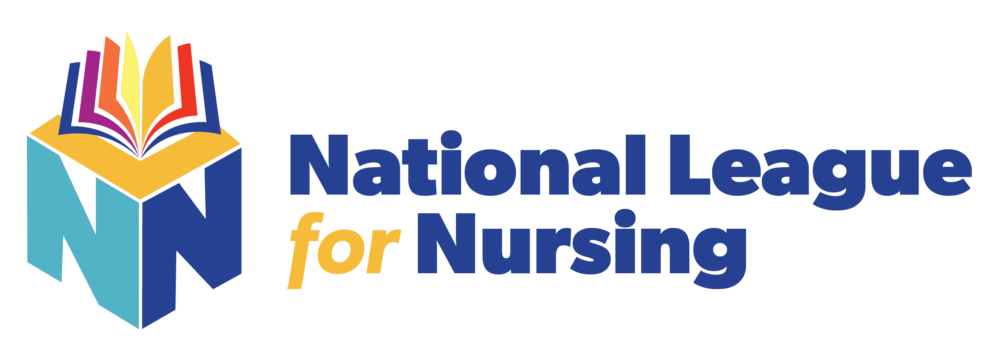National League for Nursing (NLN)
The National League for Nursing (NLN) has been involved in nursing simulation and clinical simulation research for numerous years. HealthySimulation.com signed a media partnership to support the NLN in May of 2023. In 2003 the National League for Nursing, through a grant from the Laerdal Medical Corporation, began a three-year, multisite study to explore how to design and implement simulations as a teaching strategy and evaluate selected learning outcomes using simulations. As a result of this research, the Jeffries Simulation Framework was developed. The NLN/Jeffries Simulation Theory evolved from the simulation framework in 2015. This HealthySimulation.com page will explore the contributions of NLN to clinical simulation.
Dedicated to excellence in nursing, the National League for Nursing as the nation’s first nursing association serves as the leading voice for nurse faculty and leaders in nursing education. The NLN offers professional development, networking opportunities, assessment services, nursing research grants, and public policy advocacy for nearly 45,000 individuals and over 1,000 institutional members. NLN members represent nursing education programs across the spectrum of higher education, healthcare organizations, and agencies.
The NLN Simulation Innovation Resource Center (SIRC)
Sponsored Content:
The NLN SIRC is a collaborative alliance between the NLN and Laerdal Medical. The purpose is to develop a community of nurse educators who can effectively use simulation to promote and evaluate student learning and who dialogue with one another to advance simulation in nursing education. NLN Simulation Innovation Resource Center courses are an online e-learning solution for simulation faculty and staff development. SIRC courses are designed for faculty and staff development and include topics covering everything from the basics of integrating and debriefing simulations, to conducting evaluation and research. Continuing Education credits are offered for each course.
The SIRC site offers research funding opportunities, a history of the Debra L. Spunt Lectures, tools and tips for healthcare simulation, and links to the SSH Healthcare Simulation Dictionary, SSH Sim Center Directory, and the INACSL Repository of Instruments.
NLN/Laerdal Research Study Instruments
The NLN offers several valid and reliable instruments that can be used in nursing simulation. The NLN/Laerdal Research Study Instruments are available on the NLN website for individual researchers to download for noncommercial use.
Sponsored Content:
The SDS (Simulation Design Scale) (student version) is a 20-item instrument using a five-point scale, designed to evaluate the five design features of the instructor-developed simulations used in the NLN/Laerdal study. The five design features include 1) objectives/information; 2) support; 3) problem-solving; 4) feedback; 5) fidelity. The instrument has two parts: the first asks about the presence of specific features in the simulation, and the other asks about the importance of those features to the learner.
- Content validity was established by ten content experts in simulation development and testing. The instrument’s reliability was tested using Cronbach’s alpha, which was found to be 0.92 for the presence of features, and 0.96 for the importance of features.
- Educational Practices Questionnaire (student version), a 16-item instrument using a five-point scale was designed to measure whether four educational practices (active learning, collaboration, diverse ways of learning, and high expectations) are present in the instructor-developed simulation, and the importance of each practice to the learner.
- The educational practices were derived from the work of Chickering and Gamson (1987). Reliability was tested using Cronbach’s alpha. The presence of specific practices = 0.86. The importance of specific practices = 0.91.
Student Satisfaction and Self-Confidence in Learning, a 13-item instrument is designed to measure student satisfaction (five items) with the simulation activity and self-confidence in learning (eight items) using a five-point scale.
Reliability was tested using Cronbach’s alpha: satisfaction = 0.94 and self-confidence = 0.87.
HomeGrown Solutions
HomeGrown Solutions was created by education professionals to address tricky issues in simulation. In 2007, Meg Meccariello presented low-cost solutions at a podium presentation at the International Nursing Association for Clinical Simulation and Learning (INACSL). In 2008 a HomeGrown Solutions Contest began a rich legacy for innovative solutions to common healthcare simulation issues. This website captures and houses the incredible demonstrations of talent, ingenuity, and sharing of self-made items, creative adaptations to existing items, simulation recipes, and ideas that add to the suspension of disbelief in simulation. Each item includes objectives for use, ideas to integrate it into the curriculum, and step-by-step instructions that provide a road map for replication.
NLN Leadership Development for Simulation Educators Program
The NLN Leadership Development for Simulation Educators Program is designed for the experienced simulation nurse educator who wishes to assume a leadership role in simulation. Participants focus on maximizing their leadership potential to advance simulation initiatives in nursing education and practice.
In a year-long program, participants examine issues related to research in simulation, curricular integration, the role of simulation in interprofessional education, and the management and direction of the simulation activities within a school of nursing or a service setting. With a focus on leadership, the program emphasizes leadership development to advance simulation initiatives in nursing education and practice. The program fosters the development of a community of scholars through the promotion of individual growth, interpersonal interactions within the group, and networking with previous cohorts to build on and develop new simulation initiatives. The objectives of the program are:
- Examine key issues in the design, development, use, and integration of simulation in nursing education
- Discuss the simulation initiatives of major national and international organizations
- Work on a group project that creates or expands simulation content for the web-based Simulation Innovation Resource Center (SIRC)
- Create a three-year focused career development plan
- Implement an individual plan for leadership development
The Program Includes:
- Participation in a program orientation meeting
- Fifteen Simulation Innovation Resource Center (SIRC) courses
- Access to the NLN Leadership Webinar Series
- Executive coaching sessions
- NLN Simulation Leadership monthly group meetings
- Attending an Intensive Leadership Retreat
- Attending the NLN Education Summit
NLN continues to work to advance simulation learning for better outcomes for nursing students. Learn more about NLN SIRC
NLN Latest News

2024 September NLN Education Texas Summit: Daring Competency-Based Education
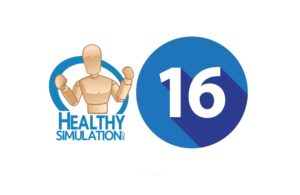
16 Must-Know Healthcare Simulation Key Terms

NLN Simulation Innovation Resource Center (SIRC) Homegrown Solutions
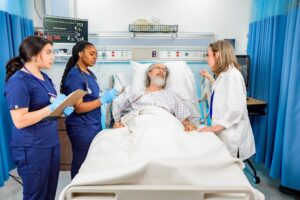
NLN’s Simulation Innovation Resource Center (SIRC) Benefits All Nurse Educators
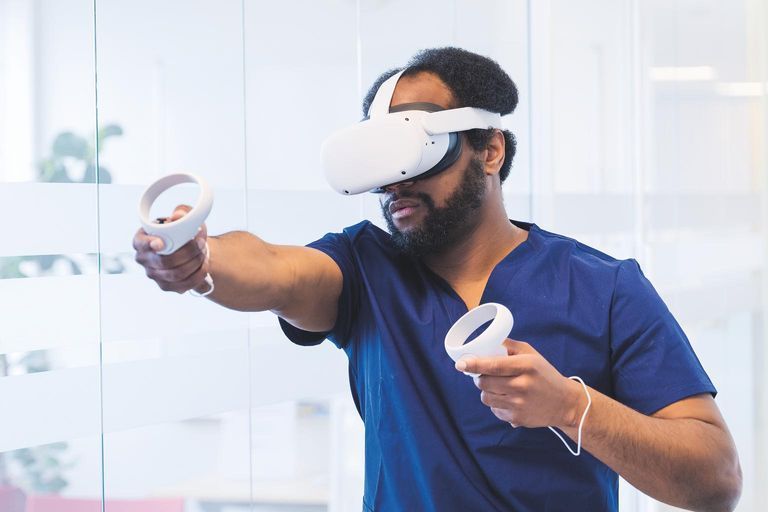
Laerdal Medical and Wolters Kluwer Launch vrClinicals to Boost Nurse Practice Readiness
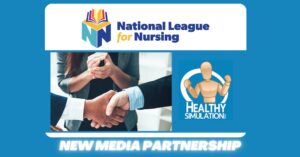
NLN and HealthySimulation.com Sign Media Partnership to Support Nursing Simulation Educators
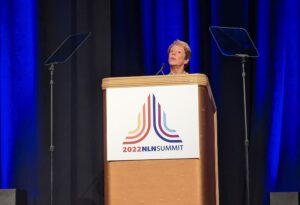
NLN Education Summit 2022 Continues to Expand Nursing Simulation Presentations

Top 50 Healthcare Simulation Articles of 2021

Leveling Up on Prelicensure Learners Telehealth Healthcare Simulations
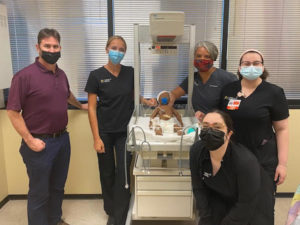
University of Central Florida Addresses Minority Infant Mortality Through Inclusive Clinical Simulation
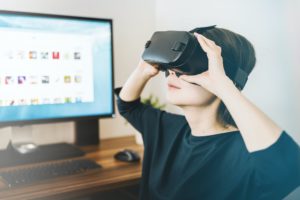
Survey Exemplifies Future of Technology in Nursing Education Post COVID-19
Sponsored Content:



